#tbosas meta
Text
Katniss is like Lucy Gray this, Katniss is like Sejanus that, and yes fine that's all good and true and lovely but Katniss Everdeen is also a direct parallel to Coriolanus Snow and people NEED to start talking about this because it's driving me crazy.
Think about it: they both grew up poor and deeply vulnerable, losing parents at a very young age, with a matriarchal adult (Katniss' mother and Coriolanus' Grandma'am) who fails to provide for them emotionally and physically. They intimately understand the threat of starvation, even developing with stunted growth because of it, and their narrations in the books share a fixation on food. Throughout their childhoods, both experienced constant fear and suffered a fundamental lack of control over their circumstances. Because of this, they're inherently suspicious of the people around them. They resent feeling indebted to others, especially those who have saved their lives. They're motivated almost entirely by family and deeply connected to their communities. Both are used and manipulated by the Capitol, both are forced to perform to survive and despise every inch of it, both are thrown into the Arena and made to kill. Both have a self-sacrificial, genuinely sweet sister figure acting as their conscience. Peeta and Lucy Gray - performers and love interests with a fundamental kindness and sense of hope about them - fulfill markedly similar roles in their narrative. Both contribute to the development of the future Hunger Games, Snow throughout tbosas and Katniss towards the end of Mockingjay.
It's easy to ignore these similarities because, as mirrors of each other, they are exact opposites. Katniss is from District 12, viewed and treated as less than human; Snow is the cream of the Capitol crop, given the privilege of a name with social weight, an ancestral home, and the opportunity of the Academy despite having no more money than a miner from 12. Katniss has no agency over her life, and responds by being kind whenever she's able, while Snow justifies horrendous evils in order to continue his quest for complete control. Katniss does everything she can to protect her family; Snow does everything he can to protect his family's image as an extension of his own ego. Katniss loves her District and connects with its inhabitants on a meaningful level, but Snow is indifferent at best to his peers - the apparent "superior people" - and only engages with his community for personal gain. Katniss emerges from the Arena horrified at herself and the system, but Snow takes his trauma and turns it into an excuse to perpetuate the violence with himself at the top. Katniss cares for Prim until her death and then snaps at the loss of her little sister, while Snow survives on Tigris' blood, sweat, and tears and then torments and abandons her, presumably because she calls him out on his insanity. Snow actively adds to and popularizes the Hunger Games because of his vendetta against the Districts following his childhood wartime trauma - Katniss briefly agrees to a new Hunger Games in the pursuit of vengeance, but later stops them from happening by killing Coin and choosing a life of peace and privacy. Snow is obsessed with revenge, but Katniss empathizes with the Capitolites and does what she can to keep them from suffering. He exists in a cruel system and selfishly upholds it; she exists in a cruel system and works to dismantle it for the good of her family and community, at great personal cost. And Peeta and Lucy Gray are incredibly similar, but Katniss and Peeta forge a relationship of genuine love and understanding that shines in comparison to Coriolanus' obsessive projection onto Lucy Gray.
So, yeah, Katniss is Lucy Gray haunting Coriolanus. But I bet you anything that eighty-something year old President Snow looks at her, the girl on fire, bright and young and brilliant, emerging from a childhood of starvation with a relentless hunger for success, a talented and charming performer helping her win the Games, and he sees the ghost of his own past. And that's why he's so afraid of her! Because if he sees himself in her, then he's up against his own cunning, his own talent for manipulation, his own charisma, his own genius. He's up against the version of himself that he once wished to be, with the nightmare army of his childhood at her back and her star-crossed lover at her side, spewing Sejanus' truths in his own voice. This isn't to say that Katniss ever achieved the level of power and agency that Coriolanus did during her time with the rebellion, but it is to say that Snow was taken down by what truly terrified him - his own morality, come to finish the job.
#the ballad of songbirds and snakes#tbosas#katniss everdeen#coriolanus snow#president snow#lucy gray baird#peeta mellark#everlark#tbosas meta#the hunger games#thg#snowbaird
15K notes
·
View notes
Text
having serious tbosas brainrot so here's a list of things that were in the books that i wish the movie showed: (spoilers below)
how far tigris was willing to go to protect coriolanus. in the books it implied she was willing to sell her body to keep him fed (also i cant even begin to imagine her reaction to seeing Snow selling desirable victors to captiol citizens when she herself as a child wanted to resort to prostitution to put food on the table FOR HIM.)
how insane dr gaul was in the books. iirc she didnt warn clemensia about the snakes and lied that they were harmless
clemensia being gone for weeks and her parents not questioning it bc gaul said it was a flu + clemensia COMING BACK all covered in scars/scales and no one questioning what happened to her (seriously the grip gaul had within the capital was INSANE)
how awful highbottom and gaul were in the books. i absolutely loathed them when i read tbosas whereas they weren't as bad in the movies (though that might be bc i love viola davis and peter dinklage)
how much coriolanus' mother meant to him (they talked about it a bit in the movie but i wish they showed him smelling her compact when he was upset/stressed)
the extent of how coriolanus manipulated both his classmates AND sejanus' parents
also how sejanus' ma always made sure coriolanus was fed when he went over to the plinth's home and how she sent them sweets and pastries when they were sent to 12
sejanus asking coriolanus to switch tributes with him because he thought coriolanus would be able to get through to marcus/better his odds
coriolanus suggesting they use the mockingjays as target practice
in the books sejanus always calls coriolanus by his given name "coriolanus" and he only calls him coryo after his stint in the arena (to which coryo wanted to strangle him for trying the family nickname at that moment)
(edited for the last three bullet points)
#thg#the hunger games#the ballad of songbirds and snakes#ballad of songbirds and snakes#tbosas#tbosas spoilers#tbosas movie#tbosas meta#sejanus plinth#coriolanus snow#tigris snow#dr gaul#lucy gray baird#clemensia dovecote#casca highbottom#dean highbottom
2K notes
·
View notes
Text
TBOSAS Meta
This started as a couple-paragraphs-long Everlark & Coryo x Lucy Gray rant. It turned into an essay on the politics of systemic oppression and how we illustrate it in fiction, with The Hunger Games and Ballad as case studies. Regardless, I hope others enjoy, lol. This is where my brain lives, now, as I expect it will the rest of 2023. Cheers!
***
It’s been interesting, the last few days, some of the discourse that’s popped up around TBOSAS. FASCINATING political discussions, as I’ve come to expect for a Suzanne Collins release. (#1 in my heart.)
Personally, I always separate books vs. movie canon with her franchise. With the OG Hunger Games, sometimes I felt the films were better—like she got another pass at it and REALLY took advantage, and utilized the hell out of taking it out of Katniss’s first-person POV to develop other characters and the world (still without detracting from her narrative)—while for some details, I preferred the books.
With TBOSAS, though, the book and movie feel almost entirely different to me.
There are MANY shared elements, of course, and I feel either version gels quite nicely with the OG franchise. It’s not even that there’s that many continuity differences—some things cut or altered for time, sure, but the bones of the plot are the same. Both illustrate astute political commentary, Coriolanus’s descent into madness, Tigris’s shift in position on him (foreshadowing her full turn by Mockingjay), and Lucy Gray’s role in his life in both his initial downfall and his defeat by Katniss. The actors and creative team all did BEAUTIFUL work bringing it to life, and I honestly love both versions.
But fans who mainly like the book may be frustrated by the sympathy Coryo garners in the film.
Normally, I’d say this is because the book reveals more internal monologue—and it does. But honestly, one of the things I was most impressed by in this film was how legible the actors’ internal monologues were. It was clear, the amount of work they all did to that end. So I don’t know that it is just more. I think it’s also different.
Book Coriolanus devolves much earlier and more obviously. He starts from the same pressed circumstances and has moments of goodness, but he becomes the villain we know him eventually to be pretty damn fast.
Film-Coriolanus has a much slower descent. Ironic, honestly, given the film has far less time than the book does.
I think as a result of this, I’ve seen discourse comparing beats in his relationship with Lucy Gray to Katniss and Peeta. For example, that beautifully shot/choreographed/performed scene in TBOSAS with him and Lucy Gray on either side of the fence after the bombings that night, where they almost kiss and he asks her, “Is this real? If I’m going to risk everything?” being compared to Peeta’s long game of “real or not real” throughout Mockingjay. Everlark folks (rightfully) pointing out that for Peeta, the refrain is about shared trauma, especially between him and Katniss, and both of them grounding their relationship in mutual trust—while asserting that for Coryo, the same refrain comes from a place of selfishness.
I get where this opinion comes from: President Snow is probably one of the most violent, sadistic, genocidal dictators in modern popular fiction. His relationship with Lucy Gray started as transactional—even more acutely in the book. Nearly everything Book-Coryo does is for his or his family’s personal gain.
But to me, half the beauty and tragedy of the film is this delicious possibility—the hope—they showed us.
THG has always had a strong anti-war philosophy in general, with through-line commentary on showmanship, propaganda, surveillance and performance: The recurrent themes of cameras always bring on them, the arenas and entirety of Panem being a stage/game—and how those things impact authentic human relationships. Everlark hit for so many because of the ways authenticity bloomed out of that hellish, contrived pit. Coriolanus and Lucy Gray’s relationship started out similarly contrived: Thrown together by the politics of the Academy, the uprising, the districts, the Capitol and the Games—helping one another survive. Largely unlike Katniss and Peeta, they both played the game intentionally, to varying degrees. (Personality wise, these four really have almost nothing in common, lol.) Lucy Gray is a good person, both in the end and from her start (unlike the terrorist Coriolanus becomes). But she is a performer. He’s right about that.
So honestly, I don’t see much purpose in reading Peeta’s question as valid while Coryo’s wasn’t. I think that judgment is colored by dramatic irony—us knowing who they each become. But in theatre, we talk about living honestly in imagined circumstances. It’s used in a lot of acting techniques, but particularly for people playing villains. To stay grounded in the truth of it, you have to believe honestly in the imagined moment, not the gestalt; Leslie Odom Jr. was a great Aaron Burr because every performance, he believed in the whole journey, from hope to ruin. Tom Blythe was a great Coryo because he invested in the earnest reality of Snow as a young man, not the devil we know he becomes. And at that point in the story, at the cages that night with Lucy Gray, Coriolanus was honestly grounded in similar struggles as our OG heroes: Trying to provide for and protect his starving family. His family (and the Capitol at large) reeks of privilege, and his prejudices were obviously flawed. But in his developing love for her, he was steeped in starvation, the same political forces as lashed all citizens of Panem, and was clawing his way from beneath just as much Capitol propaganda as people from the Districts—perhaps even more so, given his Grandma’am and how his father died. Because of their given circumstances, politics bled into everything—but eventually, so did feeling, and they had several moments of genuine bonding, trust and connection which the actors invested in beyond their political need for each other. There’s a constant push and pull: Holding hands at the zoo for the cameras was political; her reaching for his hand in the arena visit was less so. The first “Stop treating me like I’ve already lost” in front of everyone was wit-soaked survival, while “Please don’t let me die in that arena tomorrow,” near-whispered and with hands held between them where the camera would struggle to see, bled into real vulnerability. Saving him from the other tributes in the cage-ride to the zoo was about survival; risking her life to go back for him when the arena was bombed was at least a mix. Her motivations for singing in her interview are complex—perhaps guilt that a “rebel” attack nearly killed Coriolanus, his advice she’d get the most money that way—but I feel strongly that a non-zero amount of her was motivated by wanting to demonstrate that she trusts him, which for her is even higher-prized than love. And I also feel that, after the hospital and her “final performance”—leading up to their near-kiss at the zoo—Coriolanus scoped out the arena (and ultimately took all those risks to help her cheat the Games) both because he wanted the Plinth prize, in theory, and because he increasingly desperately wanted her to live.
The waters between them were thoroughly, legitimately muddied—which I believe was intentional, that constant tension between authenticity and politics. And as much as he was falling for her, Coriolanus saw that Lucy Gray was just as clever and good at crowd-work as he was—maybe better.
So to circle all the way back to this Everlark comparison: Given the absurdly multilayered situation, is it really that selfish or unreasonable he would check in with her during that moment through the fence? That this child—wrapped in oppressive patriarchy, violence, starvation and propaganda—would ask for reassurance before he was willing to be vulnerable, or to potentially risk his family’s lives?
Some artists are hesitant to engage with the humanity of “villains,” their origins, because they feel humanizing them excuses them. In real life, I get this: Second chances aren’t always the answer, and people need to be held accountable. But isn’t it more powerful storytelling to demonstrate the corrosive nature of all systems of oppression in our fiction, to show how they can corrupt even those who try, than to condemn people before they’ve even had a chance? Isn’t the beauty of Lucy Gray’s whole thing that everyone starts out good, and it’s our job to choose to stay on the right side of that line?
And when President Coriolanus Snow finally chokes on his last rose, wouldn’t it be a more satisfying victory if we imagined him as a real-feeling person—full owner of sixty years of horrifying choices—rather than a cartoonishly evil cardboard cutout?
Book-Coryo has a more obviously manipulative/evil streak, much earlier on. To make it plain: He’s an ass, and his “love” for her reads more like obsession. But my favorite aspect of the film (and I feel one of the most compelling) was how it illustrated that these systems of oppression can make tragedies of almost anyone: All but those at the very, very top. Suzanne’s anti-capitalist politicking—how classism turns everyone below the 1% against each other, where the “upper middle class” (doctors/lawyers/actors) is vilified to the poor as a red herring while a handful of robber-baron CEOs amass almost all wealth on the planet—strikes again. She, Francis Lawrence, the film’s creative team and these actors came together to put tragically human faces on that struggle—how hard it is to stay a good person amidst intense, violent, systemic oppression.
But none of that sings quite as true if you go into it having decided that Coriolanus was evil in his bones. The stakes are so much higher, richer, otherwise. If his love—for Tigris, for his family, for Sejanus, and yes, for Lucy Gray—was, or became, authentic.
It’s not a descent into madness if he’s already mad. Or, as he put it in the original Hunger Games film: “Hope. It is the only thing stronger than fear.”
#the hunger games meta#thg meta#thg series#tbosas meta#meta#tbosas#the ballad of songbirds and snakes#ballad of songbirds and snakes#Everlark#suzanne collins#Coriolanus snow#President snow#tigris snow#lucy gray baird#coriolanus x lucy gray#Lucy gray x Coriolanus#sejanus plinth#theatre#directing#film#francis lawrence#tom blythe#josh andres rivera#rachel zegler#leslie odom jr#aaron burr#Hamilton#hamilton musical#acting#acting school
299 notes
·
View notes
Text
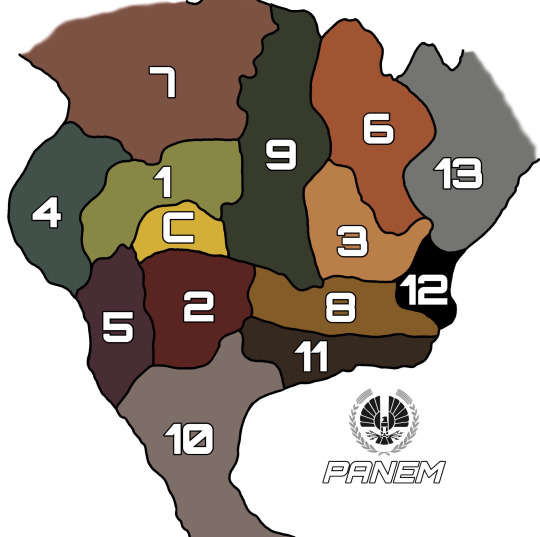

TBOSAS gave an intense look at the map of panem pre-president snow era, so I pieced it together to make a more official map than anything i've seen thus far. plus, i'm insane about fictional maps for literally no reason. [keep in mind, this is shitty screenshots that i've put together and the screen the map appears on (during lucky's weather report) appears to be rounded, so some of the proportions and such might be off. ] more stuff under the cut
so, these are the images i used to make this:
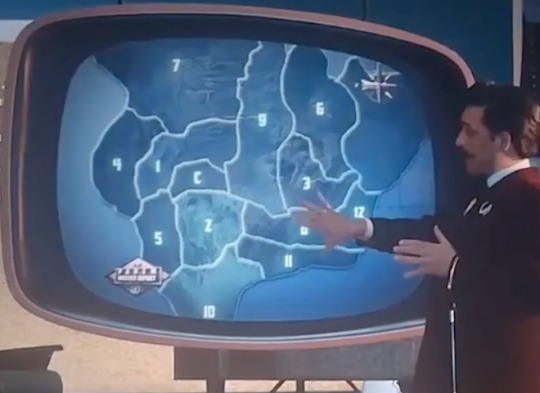

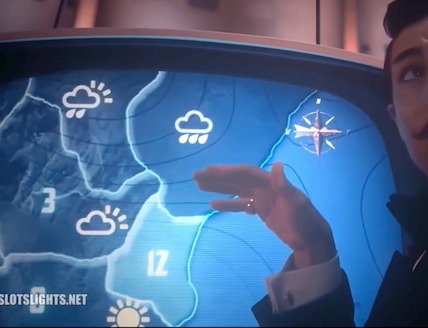

and i pieced them together as best i could, some of the borders, like the bottom right of 12 and the bottom of 5 became sort of a guessing game because they were covered up/hard to see.
doing that and cropping/pasting them together gave me this image (same as at the top of post)

red lines are clear country borders, yellow are district borders, purple is any of the areas i was unsure about. As we can see from this, districts 7, 10, and 13 (not labelled on this map because at this point in canon-time, it's 'gone') have no definite ending borders, so it's hard to even guess where they would end at. using this i made this more polished map using each district's colours that are listed on fandom dot com
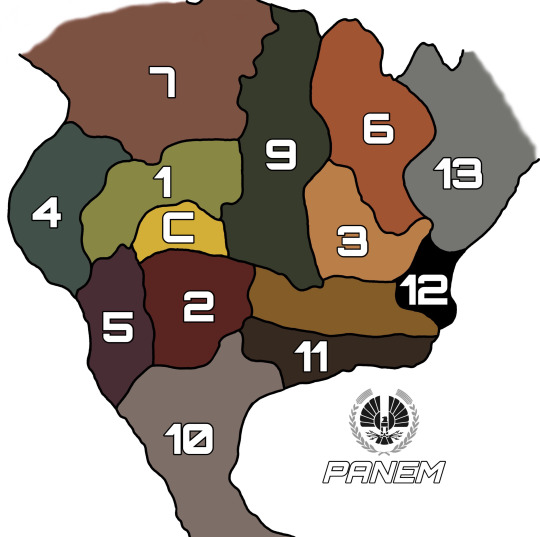
the unclear edges are left blurred because really i don't know where they end...
we know that panem is formerly north america, so i laid the image over a map of north america and got this:

it took a little adjusting because again, my map is based off of a warped television screen, but, we end up with something like this. some interesting things to note is that a lot of coast has presumably eroded away as time passed -- we lost all of baja, and most of florida and socal, and some of virginia and north carolina, and many pieces of the mexican states, though none in their entirety . the places where panem extends over NA water spaces (districts 6, 7, 13) are either from receding water levels or translation issues from the warping of the in-movie screen... or, my own personal error, i guess lol.
again, as far as 7, 10, and 13, their end borders are up to speculation, but i'd imagine 7 extends up to near the edge of the northern canadian borders and maybe into alaska -- though i can't say because that's a huge chunk of space (it is the lumber district, though, so it probably goes as high as the trees are...). same goes for 10: i'd guess it goes south a bit more to near the nartual borders, but likely in any low-elevation areas (near the southern provinces) the sea has swallowed up the land. as for 13, it likely extends more near norther quebec and out toward the maritime provinces (though i'd estimate that most of those are either completely underwater or complete above it, so there's no islands going on). truly though, it's anyone's guess, so let me know your thoughts on it if you made it this far down!
future-panem, like during the events of the hunger games, definitely has changed district borders. we knows there's fencing and forbidden area, so the districts are definitely far smaller and there's space between them (no man's land) so that there is little-to-no communication between districts.
anyway, thanks for checking this out, i spent too much time on this to come out with very little practical use, but if you're like me and you like knowing where fictional locations are/how they're laid out, this is for you
#the ballad of songbirds and snakes#tbosas#tbosas meta#thg#the hunger games#thg meta#suzanne collins#panem#district 12#district 11#district 10#district 9#district 8#district 7#district 6#district 5#district 4#district 3#district 2#district 1#district 13#the capitol#panem thg#the hunger games trilogy#map of panem#maps#meta#the hunger games map#thg map#the ballad of songbirds and snakes meta
159 notes
·
View notes
Text
things that Gale did that make me think if we had his pov in THG, it would be just like hearing Coryo's inner monologue in TBOSAS.
Treats Katniss like an object to possess, not a person with their own thoughts and opinions.
Would rather let his sibling put in his name more times in the Hunger Games pool than accept food from Katniss and Peeta (in CF)
Instead of helping the girl he 'loves', he never misses an opportunity to: 1) invalidate her feelings, 2) gaslight her, 3) remind her she somehow wronged him by literally just trying to survive (i.e. kissing Peeta and pretending to be in love with him)
Just because he has been hurt by the Capitol before, he feels the right to hurt people 10 times stronger (i.e. his whole approach to the war and how to kill the Capitol soldiers).
Feels like he's the victim. Always.
Does not own up to his mistakes and tries to hide them instead (i.e. didn't visit Katniss after the bombing in Mockingjay)
Given the chance, he hurts innocent people because he thinks "there is no other way" than violence.
#gale and coryo parallels#gale and coriolanus snow parallels#thg meta#tbosas meta#the hunger games#catching fire#mockingjay#the ballad of songbirds and snakes#tbosas#thg#gale hawthorne#katniss everdeen#coriolanus snow#coryo snow
141 notes
·
View notes
Text
i have thought in great detail about coriolanus and sejanus, and whether or not coriolanus ever really liked sejanus. i think that the novel/movie are purposefully constructed to make this ambiguous, but i prefer to veer on the side of "yes, he did."
coriolanus' way of loving people was...lacking, to say the least. even with tigris, he thought awful, mean things about her, but it was evident he cared very much for her. the problem with coriolanus was not that he couldn't love -- it was that he could not love without first being assured that his investment would yield positive results for him. at least, he could not readily admit to himself that he was loving until he knew it was going to work out for him.
his character is very succinctly summed up by sejanus, when he tells him, "I remember that from school, watching you watch other people. Pretending you weren't. And choosing the moments you weighed in so carefully" (397). without fully knowing the totality of it, sejanus got it all too right: coriolanus took people in, measured them out, decided what they meant to him, and weighed in when he thought it'd benefit him. coriolanus was calculated in all things, most of all in love—a thing he knew made you vulnerable.
but that's not to say what coriolanus said to himself was the exact same thing as what he felt. if it was, i do not believe he would've done half the things he had done for sejanus--even given the prospect of reward in the end. this is part of what makes coriolanus descent into evil so heartbreaking: a part of him was good. he did want for connection and comfort, even if he had a real fucked up way of going about getting it. coriolanus was a dog that bit without fully knowing why; it was a protective instinct he used, because so much of his life had been filled with loss already.
in the book, after coriolanus snuck his father's handkerchief with lucy gray's scent into the tank of snakes, he went to sejanus' house. this is an incredible detail that so many people tend to overlook when they talk about coriolanus and sejanus' friendship. the beginning of the chapter reads:
"What had he done? What on earth had he done? His heart raced as he blindly turned down one street and then another, trying to make sense of his actions. He couldn't think clearly but had the dreadful feeling he'd crossed some line that could not be uncrossed" (287).
we start this chapter with a frenzied, rattled coriolanus, one terribly afraid of what he had just done and the consequences this action might have later. he was scared and isolated, and he didn't know what to do. a little further on, collins writes: "His feet had carried him far from home, but he realized the Plinth apartment was just a few minutes away. Why not pop in?" (288).i find this construction of words to be fascinating, especially in relation to coriolanus--a character we have come to known as calculated and precise, even in moments when he has to think on his feet. one could argue that during this part of the book, and in this state, it makes sense that coriolanus might wander that far from his home absent-mindedly. it shows how out of touch with himself he had become, and just how much the act he had just committed disorientated him. but i think it was more than that. i think coriolanus wanted to go to the plinth's house, that he was seeking comfort after he had done something incredibly dangerous (something, arguably, that sejanus might have done), and he could not admit it to himself. and his original intention had been to see sejanus, but sejanus was asleep.
the fact that collins wrote "his feet had carried him" and "he realized" is so brilliant. i’ve got lots of opinions about why she chose to write the book in a third person point of view. one of the reasons i think she did it has to do with the fact that coriolanus was distancing himself from himself--shedding culpability through phrases such as these, especially in moments like this. coriolanus did love sejanus, but he simply could not admit it to himself because sejanus was not a safe or wise investment to make. coriolanus refused to give credence to his need for him, and it ended up killing the boy in the long run.
#sejanus plinth#coriolanus snow#the ballad of songbirds and snakes#tbosas#suzanne collins#tbosas meta#tbosas analysis#didn't mean to write an essay#this fully was meant to be a short post but i had finished all my homework#and suddenly i had my kindle app open and i wrote a page number without thinking (bc i am an english major and this is my lot)#and bam it was an essay
109 notes
·
View notes
Text
Lucy Gray Baird's World View

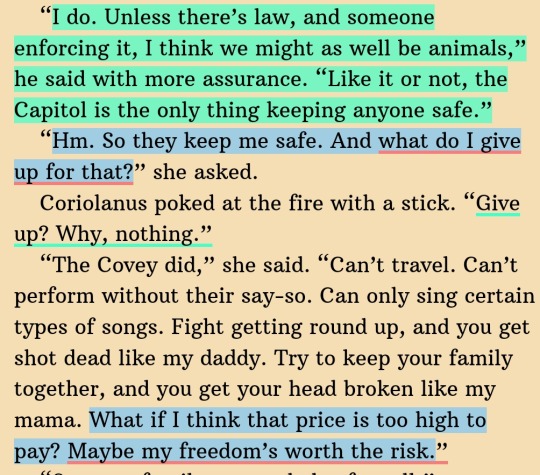
Lucy Gray and freedom

Their conversation in the lake. Coryo parrots Gaul's beliefs and Lucy Gray talks about her culture's.

Them concluding their discussion (their sharing of philosophy). Lucy Gray believes that people can still thrive even without a high sovereign to enforce them.

"One thinks himself the master of others, and still remains a greater slave than they."
- Rousseau
According to Rousseau, although humanity is naturally free, civilization's laws and obligations bind us. He claims that all of the negative aspects of human life are caused by society rather than nature.
Rousseau sees human nature as being inherently good, unselfish, and non-violent. He maintains that man in the state of nature was free, happy and amoral since, according to him, the concept of morality comes with civilization.
Like Rousseau, Lucy Gray believes that humans are naturally good and made corrupt by society.
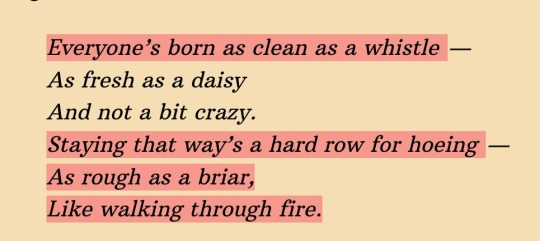
Lucy Gray seems to believe that people are born pure. That they have natural goodness inside them and are inherently free. That people have natural compassion and innocence but their society corrupts them.
Staying good and compassionate is hard especially in a dystopian regime.
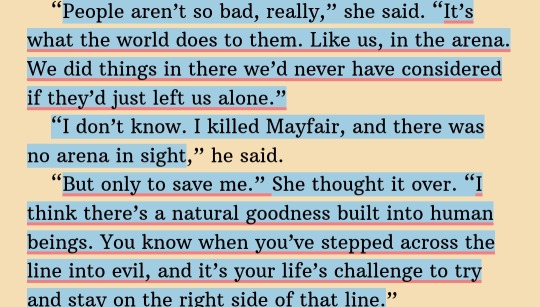
People have inherent goodness therefore deserves freedom
But also freedom to her means the power to control one's own choices and behavior. "it's your life challenge to stay on the right side"
Coryo towards the end fully believes in Gaul's world view to escape his guilt because if Lucy Gray was right then there was natural goodness inside him after all and he abandoned it (it was his choice to do so) and chose the easy path of evil.
#snowbaird#coriolanus snow#tbosas#the ballad of songbirds and snakes#lucy gray baird#thg#the hunger games#Lucy Gray is not naive#tbosas meta
75 notes
·
View notes
Text
i know a lot of people have been going 'oh, Katniss reminds Snow of Lucy Gray' and 'Katniss reminds Snow of Sejanus' but has anyone thought that Katniss might remind Snow a little of himself too?
One of Snow's biggest struggles was admitting to himself that he loved Lucy Gray, that he could see her as a human, and that it was okay to have those feelings. He was then 'betrayed' by her, something that caused him to lose a lot of his growing faith in humanity. At the beginning, he was 'playing the game' and trying to win Lucy Gray donations and sympathy points, but somewhere along the line those fake feelings became (what he thought was) real.
Katniss, to some extent, was the same. She had such extreme trust issues, both in the people around her and herself, that she couldn’t trust that what she had was Peeta was love. She couldn’t trust that Peeta really loved her. Snow, the whole time, knew Peeta was a showman like Lucy Gray. Snow was convinced that Peeta wasn’t in love with Katniss. And he saw himself in Katniss - someone rebelling the system but unsure if it was for personal gain or love. He knew that, at the start, Katniss ‘faked’ the love to win the game, and later on was confused if it was real. Playing the game. Just like Snow. He was watching Katniss in the 74th games, and then the 75th, and he was reminded of himself all those years ago.
Imagine. He knew, the second she started to sing, that she was going to bring change. Unlike him, she made the decision to stay good, and she didn’t take that step into the ‘evil’ territory. She was like him, but she was stronger.
#this is not meant to undermine people’s comments on her being like Lucy Gray and Sejanus#because i agree with those too#I think she’s a mix of all of them#she’s just the ghost of his past#thats why he was so obsessed with her over everyone else#he saw in her what he tried to hard to forget#he knew it was the end right from the start#the ballad of songbirds and snakes#the ballad of songbirds and snakes theory#tbosas theory#tbosas meta#coriolanus snow#katniss everdeen#lucy gray baird#sejanus plinth#peeta mellark
112 notes
·
View notes
Text
tbosas spoilers under the cut
so I've been thinking about coral's arc and why it makes me want to cry my eyes out
"I couldn't have killed them all for nothing."
she too was a child, she knew what the stakes were and tried to do the most she could to go home. she knew that meant sacrificing part of her humanity and her soul but she would do it, so she could go back to her family, to her parents and her siblings.
and in the end, giving up her humanity and her soul amounted to nothing, because she died too. she killed them all and for what?
she deserved better. they all deserved better.
113 notes
·
View notes
Text
Rereading Catching Fire after having read TBOSAS is interesting because Snow's entire pr strategy around the quarter quell is based entirely on his way of thinking and fails precisely because of its flaws
He puts Katniss in her wedding dress for her interview because he wants people in Panem to know that nothing will save them, because what he sees is a stupid kid who stepped out of line and needs to be eliminated for it
But because he thinks compassion, sympathy, and treating other humans like valuable people are stupid, worthless weaknesses for inferior people, he fails to anticipate that the rest of Panem will see one more injustice done to the Districts, and a hand twisting the knife as hard as it can for no reason
He fails to anticipate that even in the Capitol people have hearts, and there's only so long you can spend watching the same people on TV before you grow attached to a couple of them in some way, and thus will be sad when they die unnatural and unfair deaths (and maybe even start wondering why the rules can't change after all)
#Matt reads#hunger games#catching fire#Coriolanus Snow#Meta#Coriolanus meta#thg meta#tbosas meta#tbosas#20n#30n
47 notes
·
View notes
Text
Thinking how TBoSaS as a whole seems to have more mentions of anything alluding to religion than the previous three books together... By no means is there a lot of it here either - but there's Sejanus' District 2 funeral customs and it crops up in Lucy Gray's songs... "I know the soul that you struggle to save" is explicitly religious terminology (likely not correct religious terminology, but never mind) and of course "You're headed for Heaven, the sweet old hereafter". I'm almost hesitant to count the latter, because the characters in the trilogy also have some vague ideas about some sort of afterlife - Katniss comforts herself thinking "Rue is safe and happy now" after the girl dies, and - I'm not sure it's in the books, but it's in the movies - there is the "If I see you again it will be in another world" line (meaning "either we overthrow the Capitol or we all die"). But neither actually says the word "heaven" outright.
And I know I'm sort of grasping at evidence here, but I do like to think it points to the conspicuous lack of religion of any sort in THG being a state manufactured by the Capitol, if it increases the longer it has been in power.
40 notes
·
View notes
Text
Everyone places Lucy Grey as the ghost which haunts Snow and influences his future actions, but it is actually Sejanus who haunts Snow. It is the empty, cracked shell of Sejanus and his life that Coriolanus Snow crawls into and inhabits and uses to survive. The cost of Snow’s life is intrinsically tied to the loss of Sejanus’, and there is not one without the other.
343 notes
·
View notes
Text
Something I loved about tbosas is how Coriolanus Snow is a person who starts out (relatively) good. Collins shows how everyone is inherently good , but their environment and the choices they make ultimately decide whether they stay good.
Coriolanus doesn’t necessarily start out as a bad person. Yeah, he’s manipulative and looks down on people around him, but he’s also hardworking, ambitious, and resilient. I’m not ignoring the fact that Coryo made choices that made him evil, but it’s also important to acknowledge that his environment, and largely the authority figures in his life, had an enormous role in setting the stage for his fall into evil.
When faced with a villain, people want to be able to call them pure evil. They want to look at someone and see them as an unfeeling, sadistic psychopath.
People want to look at villains and say, “look at all the horrible things this person has done, they’re irredeemable and can’t be considered human, I would never even think of doing something like this”
But I think this way of thinking is so harmful. It makes people blind to the Coryos in their own life, in the real world. Refusing to acknowledge that horrible people are still people does nothing to prevent more people from becoming evil. We need to realize that these people were kind once, and can still be kind to some while being cruel to others.
It’s important to acknowledge that Real villains are still human, they still feel and care and can be kind. And I love how Collins forces us to come to terms with this through tbosas.
I don’t know if what I wanted to say came across correctly, I’m really bad at putting my thoughts into words, so if anyone wants to discuss this or add on please do!!
#suzanne collins#coriolanus snow#thg series#hunger games#the hunger games series#tbosbas#thg meta#tbosas meta#everyone’s born as clean as a whistle#pure as the driven snow#lucy gray baird#I’m not excusing his actions#I’m just saying that Coriolanus snow could have been good#if he had the right support and the right environment to grow up in#people are complicated#and we need to acknowledge that
49 notes
·
View notes
Text
I’d never seen this photo before today.
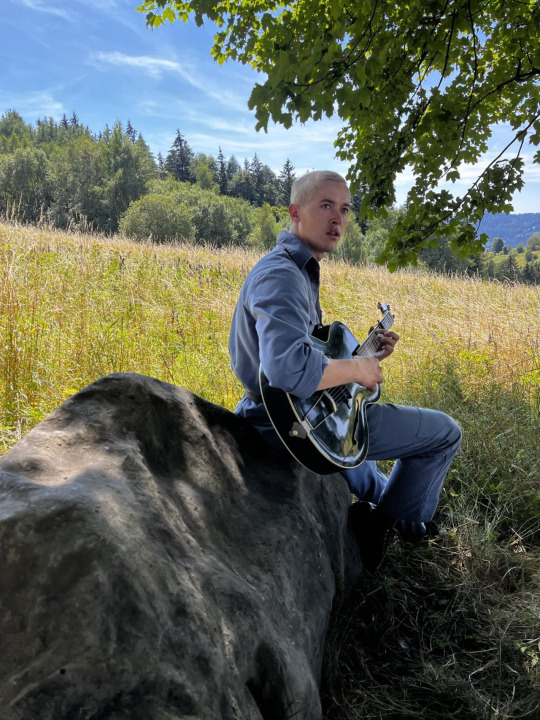
They changed a lot about the material from Twelve, some of which I didn’t take issue with. But this is one thing I wish they would have kept.
With all the delicate interweaving about trust—how important it is to Lucy Gray, how Sejanus trusts Coryo too, how he slowly betrays the both of them—this was an important moment. In the book, it leads into a longer scene of them with the Covey, which they cut, so it’s a different transition—they used it here to simultaneously illustrate A) the threat of the other Peacekeepers to their relationship, and B) the rhetorical power of the woods/lake/nature to alleviate those pressures. But with the book version, after they’ve kissed and sat together for several hours and are heading back, Coryo offers to carry Lucy Gray’s guitar for her. He has a moment of internal monologue where he wonders if she trusts him enough to touch it.
And she does, without skipping a beat.
#I don’t mind that they played up the lack of trust#lucy gray baird#has. it lends her more intelligence and emphasizes her trauma from the games#but it does change the dynamic of their relationship a bit#she could have hesitated and then let him. would’ve conveyed the same meaning. and even given#tom blyth#a moment to play paranoia at “why didn’t she agree immediately”#since they took far less time with their relationship in#district twelve#than the book does. which I understand. but still is why I almost wish they had gone the route of#mockingjay#I get it but still#coriolanus x lucy gray#coriolanus snow#tbosas meta#tbosas#the ballad of songbirds and snakes#ballad of songbirds and snakes#tbosas spoilers
92 notes
·
View notes
Text
tigris hating the new snow (colour symbolism + minor meta from this scene)
i'm so deeply obsessed with so many of the colour choices in tbosas movie.... like wow! one day i'll talk more about them, but one i want to pull out and talk about right now is tigris' colour scheme in her last scene. the one where she's wearing this:
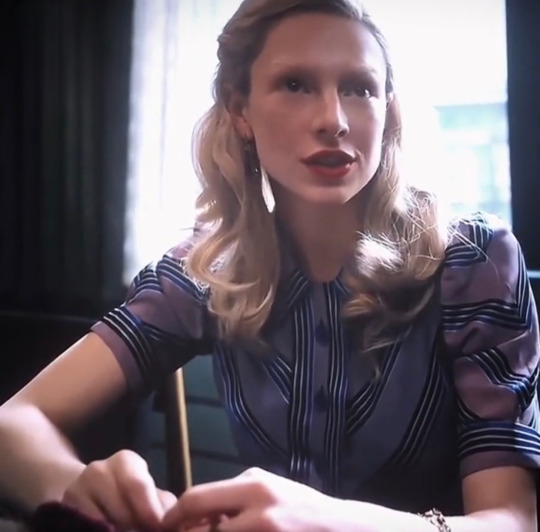
(the picture is not great quality, i'll update this when i have a pic that's more than 2 pixel lol, but it shows what we need to see)
she's got on a light purple/lavender dress with dark blue stripes. blue and purple are usually associated with wealth and royalty (given the historic complications that came with producing them).
purple is especially representative of royalty and wealth, and tigris' outfit is mostly purple, symbolizing the new (wealthy) life that she's found herself in.
blue, along with it's other meanings is associated with melancholy. we know that tigris is unhappy/heartbroken/disappointed with snow's changes, so this link makes sense. it is also a passive colour, showing us that she is passive in coryo's transformation into snow -- there's not much that she can do about it anyway, but i digress. the deepness of the blue implies something tumultous, which gives us an insight into what she's likely feeling: relief at being out of poverty, happiness for coryo's success, but a deep sense of uncertainty and unease at this new snow persona that he's adopted. finally, it can also a colour of peace, which i take to mean that she's sort of made peace with what she cannot change about him, regardless of how she may feel about it.
now we get to the standout of this outfit: the red lip!
usually we see tigris is lip colours that are complimentary to the other colours she has on from what i recall; when she wears pink, her lips are pink, when she's got on dark magentas her lip colour matches/compliments it. the red lip here is clearly an intentional choice as it is a contrasting colour that stands out brightly against the mostly subdued/cool-toned rest of the outfit.
red can be recognized as the colour of passion and anger. the fact that it is on her mouth is certainly trying to show us something. what she says to snow here is "you look just like your father, coriolanus". it is clearly a dig, clearly meant with negative intent, with anger. she is heated! this is the little boy she grew up with, that she protected, that she loved and he's morphing into something sinister before her very eyes. if it wasn't clear by what she said, the subtext behind it, and the way that she said it, the red lip indicates her anger here.
it stands out as a little piece of rebellion against just accepting snow the way he is. she is clothed in colours that show her wealth and complacency with the changes that caused them, but she isn't entirely willing to let it go all the way.
also, she wears warmer colours for a lot of the movie -- pinks and the like -- and now she's in more cool tones, which is an obvious choice being made. she loves coryo (perhaps not snow so much), and she is letting herself be swallowed up by this new life (symbolized by the royal colours and new wealth), but she has that little bit of her that is clinging to the past, that wants her coryo back.
her (minor) dissent against snow is verbal, it is subtle and not exactly obvious to anyone except her and him, in the same way that the red lip is a subtle way of emphasizing her displeasure with this new snow.
she chooses her words very carefully, tailoring them to be a direct referral to her convo with coryo after the arena ("i know you wanna be like your father, but, what i remember the most about him, was that in his eyes it was just hate. you don’t have to pay the same price just to survive. people can be good. you can be good"). snow is like his father, who tigris remembers most as having hate in his eyes. coryo didn't have to pay the same price just to survive, he could be good, but he paid that price anyway.
in the full quote from her last scene, tigris says "i think you look just like your father, coriolanus." This stuck out to me because I don't really remember her ever calling him by his full name often (maybe just at the start when we get the "future president of panem" thing). it seems like perhaps he insisted on; he's not coryo anymore, he's coriolanus snow -- no, he's snow; it could also be something tigris did intentionally. either way, it shows that he is not her precious, still-able-to-be-good coryo anymore.
another interesting thing from this scene is her positioning. she does not rise for him, instead remains sitting at her sewing machine (someone look back and see if its a new machine or if she's using the same one as before!!). she does not rise to greet him happily like the Grandma'am, she remains seated, clearly showing her displeasure at the new snow. plus, usually rising when someone enters a room shows respect; tigris does not rise, ergo she does not respect him!
this also makes me believe that she is not making his clothes anymore (she's at the sewing machine, clearly she can make the clothes, but he grabs the coat out of the closet, showing that it's not a tigris snow original creation). it's a contrast to how we first see adult tigris, rushing up to coryo with a shirt she made/modified. now she keeps her distance and doesn't give him clothes. this shows that huge huge huge pit growing between them. once again, this is not her coryo anymore.
i'd assume that she initially was offering to make/alter his clothes, but somewhere along the way he refused. it's a sign of the hard times when all he had to wear was too-small shoes and potato-starched shirts sneaked in with curtains to be bleached. buying new clothes shows power and wealth and coriolanus' 'impeccable, well-bred, respectable taste' that comes from being a snow.
regardless of the how, she's not doing his clothes anymore, she's displeased over the new snow, he's not her baby coryo anymore, and the distance between them has never been bigger, not even when he was all the way in 12.
#the ballad of songbirds and snakes#the ballad of songbirds and snakes meta#tbosas#tbosas meta#coriolanus snow#tigris snow#tigris snow meta#coriolanus snow meta#panem#panem fashion#the capitol#president snow#coryo#snow lands on top#suzanne collins#thg meta#thg#mine
106 notes
·
View notes
Text
You know what I can’t stop thinking about?
The fact the whole institution of the Hunger Games was created because of a single family's paranoia. And not even the whole family, but two privileged white men whose nature was to take advantage of people and situations whenever possible. Snow projected his own nature onto the world. Mans head was so deep in his own ass that never once he thought there was a possibility that people were inherently kind and that was ultimately his downfall. Like somebody else pointed out, Snow falls on top. But it does fall.
#tbosas#tbosas spoilers#but are they really lol. the book has been out for ages#tbosas meta#thg#the hunger games#coriolanus snow#coryo snow
45 notes
·
View notes